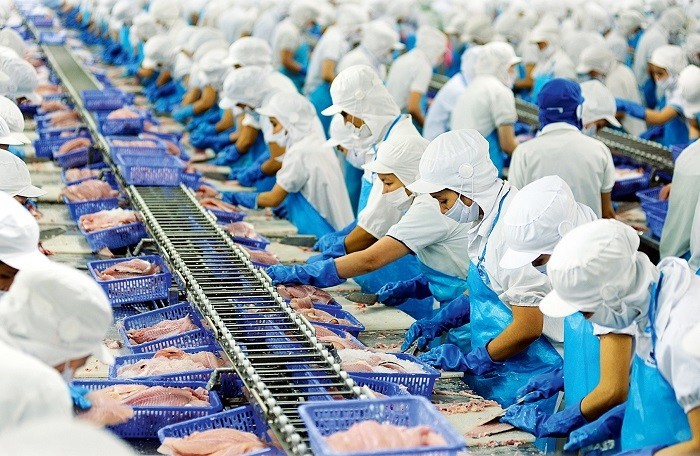




(Tiếng Việt) Công ty chúng tôi đã tin tưởng sử dụng máy móc của Đông Dương Vi Na nhiều năm qua. Mặc dù giá thành cạnh tranh so với thị trường nhưng lợi ích mang lại cho công ty chúng tôi rất nhiều
(Tiếng Việt) Mr Kim

(Tiếng Việt) Rất hài lòng về máy móc tại công ty Đông Dương Vi Na, từ khi sử dụng các giải pháp mà công ty Đông Dương cung cấp đã đem lại rất nhiều lợi nhuận cho công ty của tôi
(Tiếng Việt) Mr Tùng

Lorem ipsum dolor sit amet, consectetur adipiscing elit. Qua tu etiam inprudens utebare non numquam. Quid me istud rogas? Non quam nostram quidem, inquit Pomponius iocans; Ita nemo beato beatior.
Ms Duyên
Our work has been directly cited by organizations including Entrepreneur, Business Insider, Investopedia, Forbes, CNBC, and many others. We follow strict ethical journalism practices, which includes presenting unbiased information and citing reliable, attributed resources. The three types of expenditures are Capital Expenditure, Revenue Expenditure, and Deferred Revenue Expenditure. An expense refers to a situation in which money is spent, but where there is no return of value. People who believe governments can and should trigger economic growth by spending more, specifically during a recession, are known as followers of Keynesian Economics.
The article explores the definitions and distinctions between expenditure, cost, and expense in accounting. It emphasizes their roles in financial reporting and how they relate to asset valuation and the recognition of consumed resources in financial statements. According to the accrual basis of accounting, expenditures are recorded when they are incurred, not necessarily when they are paid.
It is a key component of financial statements, providing insights into how money is being utilized and the impact it has on the company’s overall profitability. In the realm of financial management, it is crucial to have a clear understanding of various terms and concepts to effectively manage your organization’s resources. As per the definition, revenue expenditures are usually recurring expenses, the benefits of which are received during the accounting year.
In the world of manufacturing, machinery is consistently changing and improving. The machinery a company uses to produce its goods may become obsolete in a few years. When a piece of machinery becomes irrelevant to its original purpose and it is no longer useful, upgrades become necessary. Ever noticed those financial terms that sound almost identical but mean totally different things? Now that you have a comprehensive understanding of expenditure and its significance, you can apply this knowledge to effectively manage your finances and make informed financial decisions. Accurate expenditure tracking provides the necessary data for informed decision-making.
When a company acquires a vehicle to add to its fleet, the purchase is often capitalized and treated as CapEx. The cost of the vehicle is depreciated over its useful life, and the acquisition is initially recorded to the company’s balance sheet. Common expenses are the cost of goods sold, rent expense, wages expense, and utilities expense. A financial professional will offer guidance based on the information provided and offer a no-obligation call to better understand your situation.
Primary-activity expenses form the backbone of your operating expenses—these are the necessary payments that generate your core revenue. Tracking expenditure is crucial for financial planning, budgeting, decision-making, and cost optimization. By closely monitoring expenses, individuals and businesses can identify areas for cost-saving, allocate resources effectively, and ensure compliance with legal and regulatory requirements.
These purchases aren’t just costs; they’re investments that contribute to revenue generation over time and expand your production capacity. Expenses are costs that keep your business running day-to-day, while expenditures typically represent larger investments that deliver value over multiple accounting periods. They estimate the new machine will be able to improve production by 35%, thus closing the gap in the demanding market. To generate income, a firm has to use some of its resources to produce goods and services and offer them for sale.
The articles and research support materials available on this site are educational and are not intended to be investment or tax advice. All such information is provided solely for convenience purposes only and all users thereof should be guided accordingly. Variable Expenditures are those that fluctuate with changes in production levels or increases or decreases in revenue. In addition to budgeting, businesses also need to actively manage and control revenue expenditure. This involves implementing cost-saving measures, negotiating favorable terms with vendors, and regularly reviewing expenses to identify areas where efficiency can be improved. These decisions often involve significant financial resources and have long-term implications on the organization’s financial health and strategic objectives.
CapExs are typically larger investments in assets to grow the business, such as purchasing new machinery to increase production or acquiring a competitor to take over more of the market. The expenditure might be for a significant long term asset (capital expenditure), a short term asset (prepaid insurance), a reduction in a liability, or for an immediate expense such as rent. Expenditures are investments in physical assets—such as property, equipment, and buildings—that provide benefits over multiple years.
Long-term expenditure, on the other hand, involves significant investments or expenses that have a lasting impact on the organization’s financial position. Expenditure refers to payments made or liabilities incurred in exchange for goods or services. The term expenditure usually refers to capital expenditure, which is usually a one-time cost and is incurred to receive a long-term benefit, such as the purchase of a fixed asset. CapEx is related to long-term spending – a major investment – while a revenue expenditure is related to short-term operating expenses.
This means that you will have to record the expenditure as soon as it is incurred, irrespective of whether the payment for it has been made or not. We know that deferred revenue expenditure expenditure definition in accounting refers to an advance payment for goods or services, the benefit of which is to be received only in the future. Since the subscription for trade magazines are being paid one year in advance, it will be classified as deferred revenue expenditure. A business isset to have incurred capital expenditure when the payment is made to acquire anasset, the benefit of which would be spread over several years. Businessesinvest in capital expenditure (CapEx) to acquire new assets or to improve theperformance of existing assets and is usually a one-time expenditure.
It is not until the expenditure is recorded as an expense that income is impacted. Deferred revenue expenditure, or deferred expense, refer to an advance payment for goods or services. The arrangement is usually an agreement that the company will receive a service or goods in the future – but it pays for the goods or services in advance.
These costs enhance operational capacity and efficiency, making them long-term investments rather than immediate expenses. Expenses represent ongoing operational costs, while major expenditures require upfront investments that, if not planned properly, can strain cash reserves. Strategic capital budgeting ensures businesses can invest in growth without jeopardizing financial stability. The difference between expenses and expenditures isn’t just accounting jargon—it directly impacts financial reporting, tax strategy, and cash flow management. Our writing and editorial staff are a team of experts holding advanced financial designations and have written for most major financial media publications.